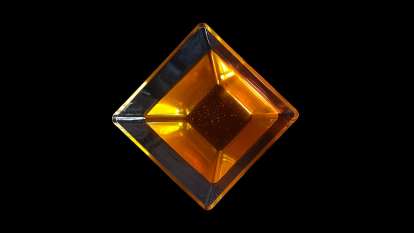Polyflora honey

Polyflower honey is recommended for herbal therapies because of the nectar from a wide variety of medicinal plants that enhance its healing effects.
Polyflower honey comes from the nectar of several varieties of plants flowering at the same time and thus borrows therapeutic properties from each of them. It has an intense, very sweet and aromatic taste and its color can vary depending on the predominant flowers, from bright yellow to dark brown.
Nutritional profile of polyfloral honey
The nutritional values contained in polyfloral honey are higher than other types of honey because it is rich in pollen of different origins.
Polyfloral honey contains vitamins of the B and C complex, enzymes, organic acids (lactic acid, gluconic acid) and various mineral salts (iron, phosphorus, calcium, potassium). It is easily assimilated thanks to its glucose, sucrose and fructose content.
100 grams of honey contains:
Carbohydrates: 82 g
Protein: 0,3 g
Potassium: 52 mg
Calcium: 6 mg
Magnesium: 2 mg
Vitamin C: 0,5 mg
Sodium: 4 mg
Iron: 0.4 mg
Storage
Store in cool and dry places.
Optimum storage temperature: 18-25°C.
Benefits of consuming polyflor honey
- Strengthens the immune system;
- Due to its high percentage of hormones, it has healing effects and stimulates the healing of wounds and burns;
- It is antiseptic, antibacterial and antimicrobial;
- It is effective in treating flu, helps to soothe coughs, sore throats and other infections affecting the respiratory system;
- It has anti-inflammatory and anti-allergic properties;
- It has diuretic action stimulating the elimination of toxins from the body;
- It improves blood circulation, especially the coronary and heart activity, through its beneficial action on the heart muscle;
- Soothes the nervous system and improves sleep quality;
- It is expectorant, antitussive and antispasmodic;
- It stimulates the digestive system;
- Provides extra energy and stimulates metabolism;
- Nourishes and strengthens nerve cells;
- Regulates the endocrine system;
- Has beneficial effects on liver cells.
- Promotes calcium absorption;
- Stimulates appetite, especially in children;
- Destroys or inhibits certain staphylococci, with antibiotic action;
- Relieves asthma attacks;
- It is recommended in the treatment of anemia due to its concentration of iron and other essential elements;
- It is recommended for pregnant women to benefit from nutritional intake;
- The antioxidants in this type of honey reduce oxidative stress, thereby preventing chronic diseases such as cancer, arthritis and heart disease;
- It is indicated in cases of physical fatigue, intellectual fatigue, overwork or convalescence;
- It has a calming, sedative action thus improving sleep;
- Fights constipation and intestinal disorders;
- Increases hemoglobin levels in the blood.
Contraindications and precautions
Anyone can consume polyflor honey except diabetics and people who are allergic to bee products.
Care should also be taken by pregnant or breastfeeding women.
Avoid putting it in food above 40°C as honey will discharge hydroxymethylfurfural - a toxic compound. Also, enzymes and vitamins C and B1 are destroyed at temperatures above 40°C, so bees honey loses most of its nutrients.
Did you know...?
- Polyflor honey tends to crystallize faster than other types of honey. This is a natural process of raw honey and does not affect its quality.
- To decrystallize place the jar in a container of warm water and make sure the temperature is no higher than 40°C.
Comments